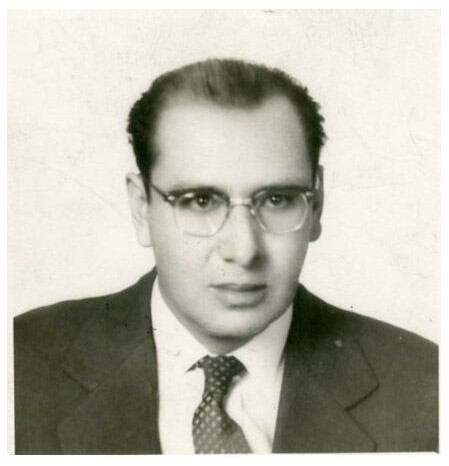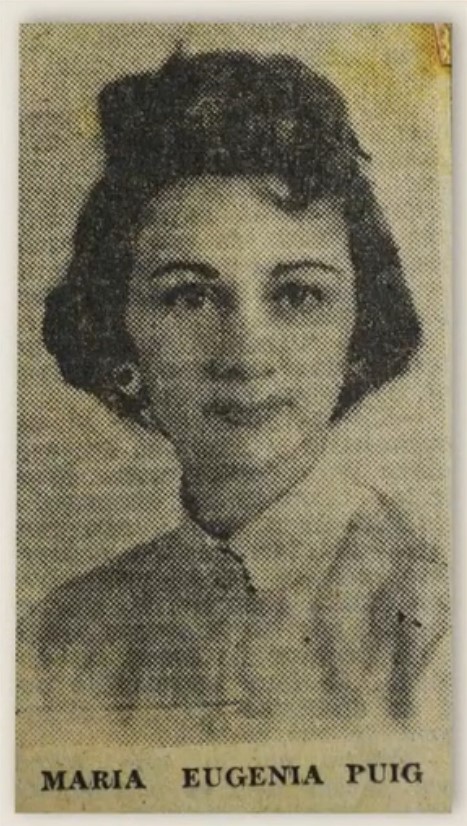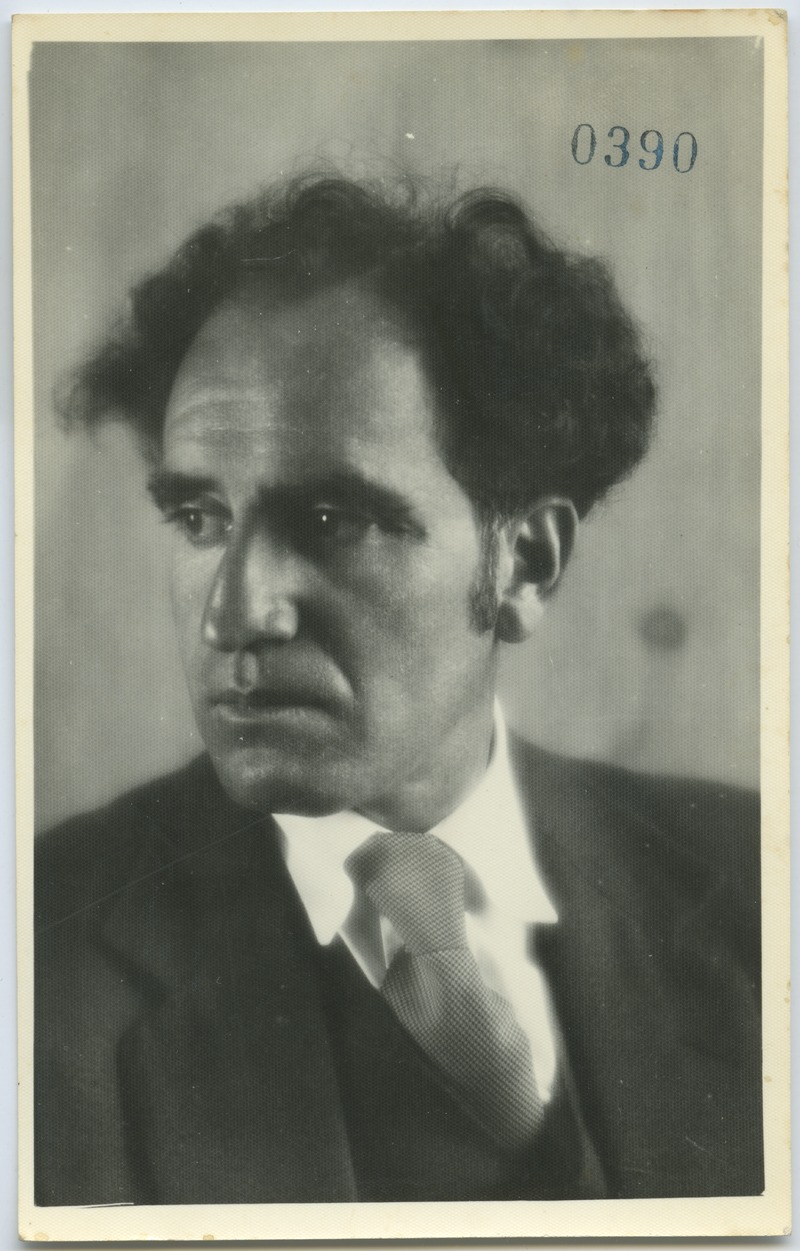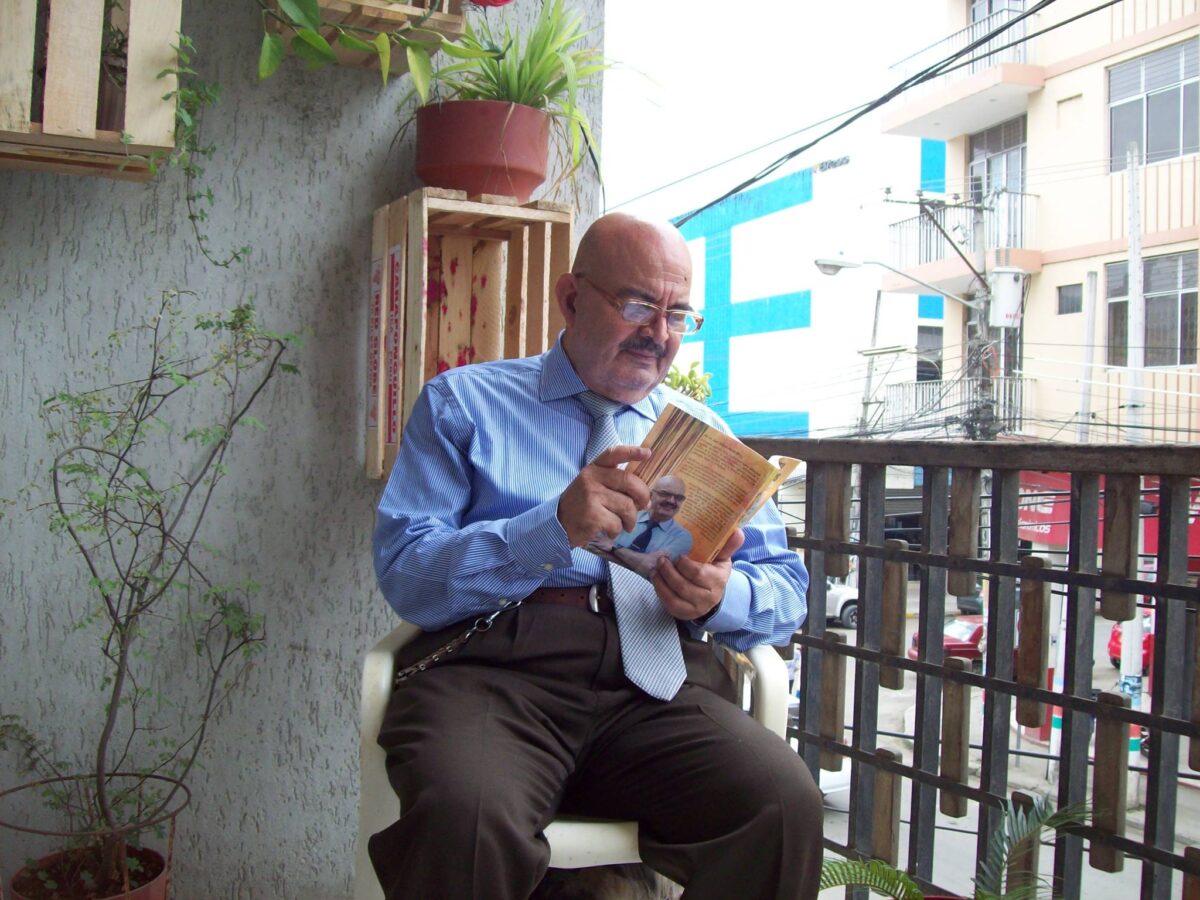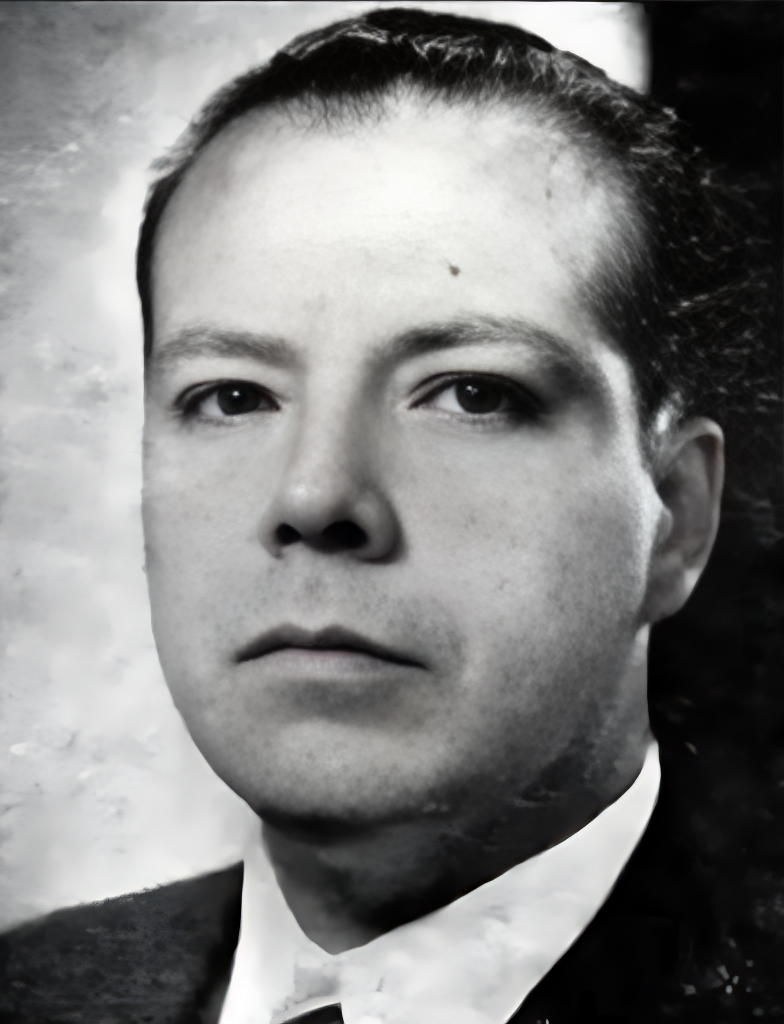Hugo Vásquez Almazán (Guayaquil, April 29, 1936 – Guayaquil, May 6, 2008) was an Ecuadorian priest, theologian, poet, and author of over 90 works. He is best known for his significant contributions to the Schoenstatt Movement in Ecuador. As one of its founders, he played a crucial role in spreading the teachings of Father Joseph Kentenich, whom he met personally in 1965. Father Hugo was the first Latin American priest admitted to the Institute of Schoenstatt Diocesan Priests and authored several notable works, including Nuestra contribución al cielo and Pondo: Poemas. His legacy extends into both religious and literary fields, and he was posthumously featured in several anthologies. He also served as a professor at the Catholic University of Guayaquil.
Continue reading “Hugo Vásquez Almazán”Category: Poets
José Ayala González
José Ayala González (Guayaquil, August 2, 1885 – June 20, 1974) was an Ecuadorian poet, farmer, and public servant. Known for his romantic and nostalgic poetry, he contributed to various publications and published a collection of his works titled La Noche Avanza. Raised in a cultured and prosperous family, Ayala González spent much of his life managing agricultural estates and held several public offices, including Chief Political Officer of Babahoyo and Vice President of the Consejo Provincial de Los Ríos. His work remained within the Romantic tradition, and while newer literary movements had emerged, his poetry continued to reflect deep emotions and connections to rural life, showing a strong attachment to the past.
Continue reading “José Ayala González”Gilberto Molina Correa
Gilberto Molina Correa (Cañar, September 20, 1915 – Unknown) was an Ecuadorian poet, novelist, playwright, short story writer, essayist, and educator. His diverse body of work spanned multiple genres, including notable contributions such as the novel Sismos y abismos (1969), the short story collection Almas conturbadas (1962), and the play Censo sin consenso (1962). He also authored the poetry collection La inefable presencia (1966). He was an influential advocate for educational reform and a school director, serving as head of Escuela Municipal “Joaquín Donoso” in Vinces. Molina Correa left a lasting mark on both Ecuadorian literature and education.
Continue reading “Gilberto Molina Correa”Néstor Campuzano Mendoza
Néstor Campuzano Mendoza (Guayaquil, February 7, 1926 – Unknown) was an Ecuadorian poet and intellectual best known for writing the lyrics to the anthem of Universidad Laica Vicente Rocafuerte. His literary career, marked by a deep sensitivity and mastery of sonnets, earned him notable recognition, including the ‘Estrella de Octubre’ award in 1956 for his Soneto a Cristo. His works, such as Horas Milagrosas, Trigal Azul, and Elegía del Ayer, reflect a melancholic and philosophical outlook on life. He is remembered as a revered figure in Ecuadorian literature for his contributions to poetry and cultural heritage.
Continue reading “Néstor Campuzano Mendoza”María Eugenia Puig
María Eugenia Puig Lince (Guayaquil, August 2, 1919 – Quito, February 4, 2001) was an Ecuadorian poet, intellectual, and diplomat. She co-founded the Grupo Cultural “Oasis” in 1955 alongside Rosa Borja de Ycaza and Zoila Luisa Campodónico de Caputti, and served as its director, documenting the group’s activities in the magazine “Oasis.” She was also a key figure in founding the Pan-American Women’s Round Table of Ecuador, advocating for women’s cultural involvement. Her legacy is honored through the Museo Municipal de Arte “María Eugenia Puig Lince,” inaugurated in Guayaquil in 2013.
Continue reading “María Eugenia Puig”María Leonor Madinyá Andrade
María Leonor Madinyá Andrade (Guayaquil, February 15, 1936 – Guayaquil, September 7, 2006) was an Ecuadorian poet known for her deeply introspective and melancholic poetry. Despite becoming blind at the age of 22, she mastered Braille and continued her literary pursuits, becoming an advocate for the blind. Her works, such as Palpitar de un sueño (1966) and Ventana del Alba (1968), are celebrated for their emotional depth and spiritual themes. Madinyá also hosted the long-running radio program Música y Poesía, promoting poetry in Ecuador for over two decades.
Continue reading “María Leonor Madinyá Andrade”Luis Cisneros Noriega
Luis Cisneros Noriega (Riobamba, 1908 – 1987) was an Ecuadorian poet, composer, and pianist. He published several poetry collections, including Cúpulas en la nieve (1960), Pinceladas (1975), Blancuras (1977), and Presencia (1983). As a composer, he created notable pieces such as the pasodoble “Quito“ and the popular song “Chola Cholita.” Cisneros Noriega also worked as a pianist at Radio El Prado in Riobamba during the 1930s, contributing to the promotion of Ecuadorian music and culture. A street in Pastaza and a school in Chimborazo are named in his honor.
Continue reading “Luis Cisneros Noriega”Elías Candel Espinoza
Elías Candel Espinoza (Guayaquil, 1896 – 1983) was an Ecuadorian journalist, poet, and coplero, known by his pen name Adel Celinas. By the 1930s, his coplas were appearing in El Universo newspaper, alongside the caricatures of Virgilio Jaime Salinas and the column Los Jueves Alegres by José Antonio Campos Maingon. Over the decades, he continued writing for the paper, producing poems and verses, including a notable tribute to tennis legend Pancho Segura in the 1950s. His poem La gran fecha was later included in the anthology Cantos a Guayaquil (2011).
Continue reading “Elías Candel Espinoza”Rigoberto Cordero y León
Rigoberto Cordero y León (Cuenca, June 11, 1916 – Cuenca, August 1998) was an Ecuadorian poet, writer, and scholar whose work significantly contributed to the development of Ecuadorian literature. Known for his extensive body of poetry, biographies, and essays, his writings explored themes of music, culture, and national identity, and were translated into multiple languages. Cordero y León received numerous awards, including the Fray Vicente Solano Decoration, and curated anthologies that highlighted the richness of Cuenca’s literary tradition.
Continue reading “Rigoberto Cordero y León”Gertrudis de San Ildefonso
Sor Gertrudis de San Ildefonso (Quito, 1651 – Quito, January 29, 1709) was a revered Ecuadorian nun, mystic, and writer known for her role in promoting the cult of Nuestra Señora del Amparo in colonial Quito. Born Gertrudis Dávalos y Mendoza, she entered the Order of Saint Clare at seventeen, where she experienced mystical visions and helped unveil a miraculous image of the Virgin Mary. A prolific writer of religious texts, including hymns and prayers, her work contributed to Quito’s artistic and spiritual heritage, and she was declared venerable for her devout life and lasting influence.
Continue reading “Gertrudis de San Ildefonso”Jerónima de Velasco
Jerónima de Velasco de Ladrón de Guevara (Quito, c. 1630 – ?) was a renowned 17th-century poet from the Real Audiencia de Quito, now Ecuador, who gained widespread recognition for her eloquent Baroque poetry. Celebrated by contemporaries, including the famed Spanish playwright Lope de Vega, who praised her as “divine” in his Laurel de Apolo, she was admired for her intellectual prowess and poetic skill. Velasco’s work was included in Jacinto de Evia’s Ramillete de varias flores poéticas (1675), though much of her own writing has not survived. She spent most of her life in Pasto, Colombia, where she also managed family affairs and raised her children.
Continue reading “Jerónima de Velasco”Teresa Ala-Vedra y Tama
Teresa Ala-Vedra y Tama (Guayaquil, April 2, 1889 – Guayaquil, 1987) was an Ecuadorian journalist, poet, writer, painter, pianist, and composer. She co-founded the literary magazine La Ondina del Guayas (1907-1910), which provided a platform for women writers to express themselves through poetry, essays, and articles. Known for her artistic versatility, Teresa also excelled in watercolor painting and music composition, contributing significantly to Ecuador’s early feminist literary movement. Her work spanned various creative forms, including drama, with her children’s play En el jardín de los enanos published in 1956.
Continue reading “Teresa Ala-Vedra y Tama”Wadía Lauando Vélez
Wadía Antón Lauando Vélez (Portoviejo, 1940) is an Ecuadorian poet and novelist renowned for his works that explore rural life, nature, and mythology, with a focus on the cultural heritage of Ecuador’s coastal Montubio region. His notable publications, such as Corazón de colibrí (2006) and Laberinto de los sueños (2011), showcase his lyrical style and deep connection to the Manabí region. In 1994, he founded the Provincial Poetry Contest “El Poeta y Su Voz” while serving as President of the Casa de la Cultura in Manabí and later served as Director of its Literature Section, actively promoting Ecuadorian literature.
Continue reading “Wadía Lauando Vélez”Manuel Agustín Aguirre
Manuel Agustín Aguirre Ríos (Loja, July 12, 1903 – Quito, September 15, 1992) was an Ecuadorian educator, jurist, poet, and political leader. A prominent Marxist theorist, Aguirre was a founding member of the Ecuadorian Socialist Party and later established the Revolutionary Socialist Party. His political career included serving as Vice President of the Constituent Assembly in 1945 and advocating for socialist reforms. As an academic, he became the first dean of the Faculty of Economics at the Central University of Ecuador and led the Second University Reform. Aguirre also authored several important works on Marxism and Latin American politics.
Continue reading “Manuel Agustín Aguirre”Jean Viet
Jean Viet (France, December 31, 1920 – August 6, 1987) was a French translator and demographer. In addition to his work in sociology and demographic research, Viet is recognized for translating Spanish literary works into French. Notably, he translated and published a novel by Ecuadorian writer Jorge Icaza as Un roman: Terre indienne in three parts in the French literary journal Poésie 47 (n° 38 in March 1947, n° 39 in May 1947, and n° 40 in August-September 1947). Viet also translated Camilo José Cela’s La familia de Pascual Duarte and Federico García Lorca’s Yerma and La casa de Bernarda Alba. His contributions extended beyond literature, as he was actively involved in sociological research at the Maison des sciences de l’homme and served as a consultant for the International Committee for Cooperation in National Research in Demography.
Continue reading “Jean Viet”
